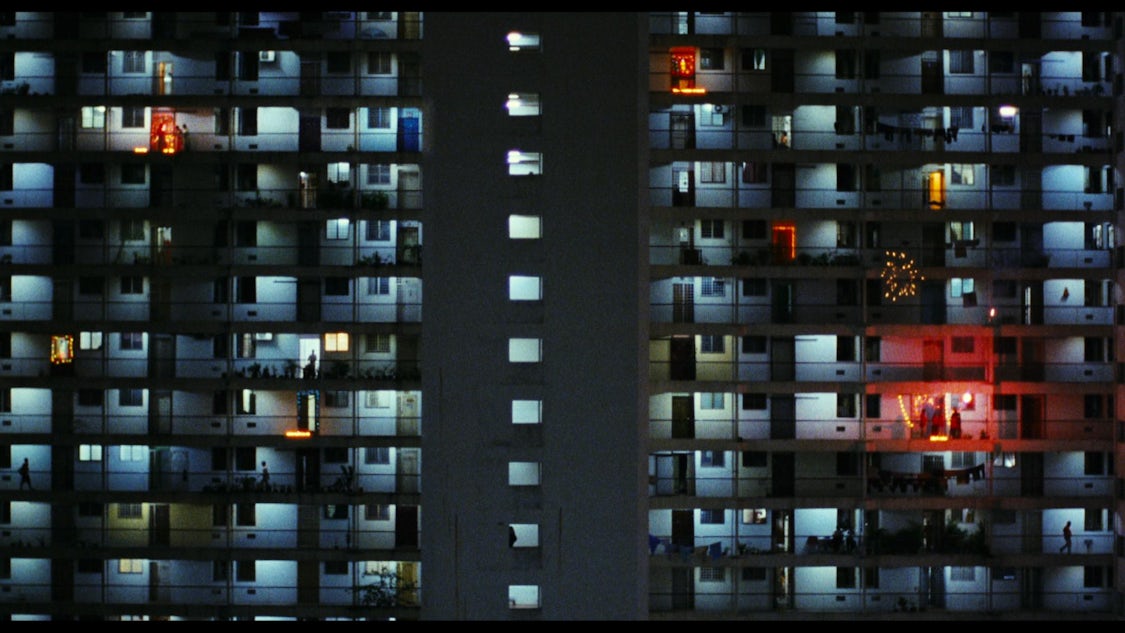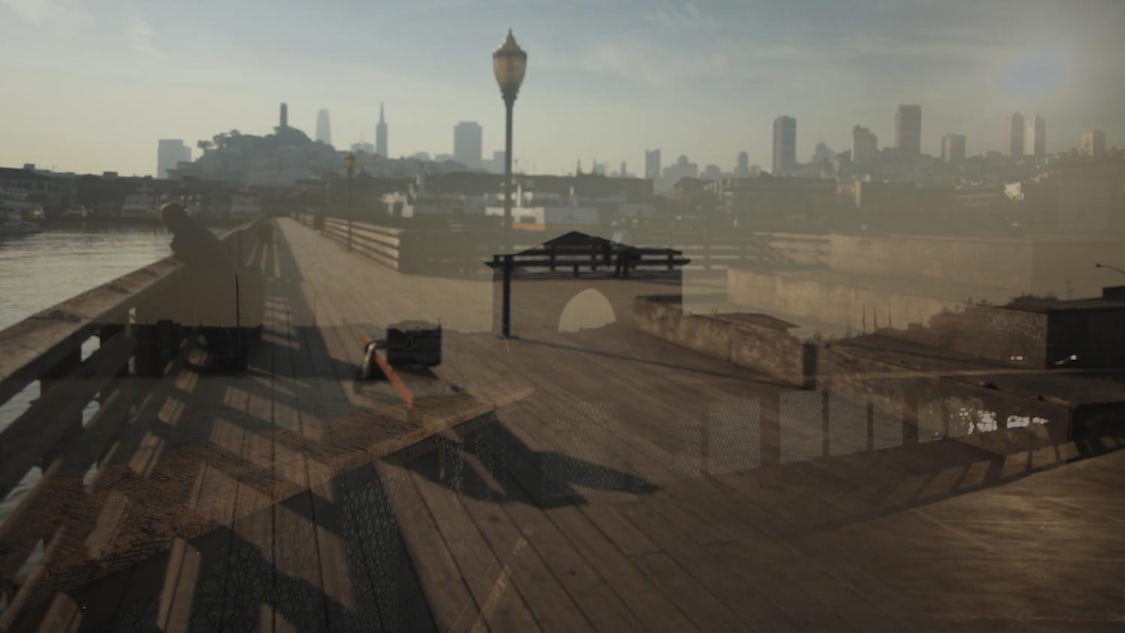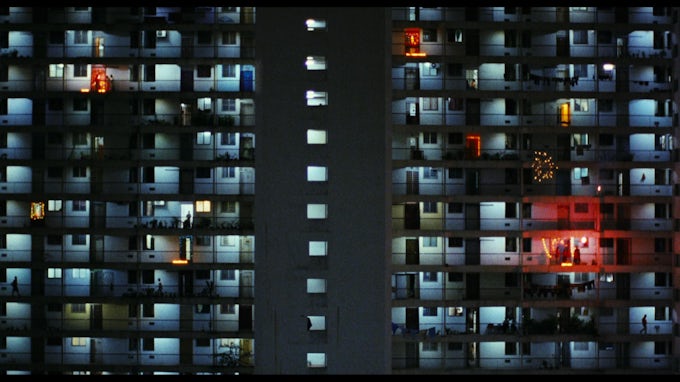
Reading Camp
At its source, Ground Provisions is a reading camp. We do many things together. We write, we organise with others, we make movies, work with artists and curate music and film. We travel the Afro-Asian century. We work in the Caribbean and we work in Asia. But if we were to return to the source, this source would be our reading camp. We conceived of the reading camp as a kind of refuge where people can read together. We use the word refuge because the camp involves reading in a quiet place, a place of contemplation and reflection. We read together and to each other and by reading together we make this refuge a place of conversation, discussion and conviviality. It’s a retreat, but one we make together. And this is why we call it a refuge. We retreat together. We read together. We read to each other. When we offer a reading residency at our base in Barbados, we offer it to read together.
But why call it a reading camp, and not a school? We have had experiences with autonomous schools, wonderful experiences, from the Decolonial Black Feminism School in Cachoeira, Brazil to ESC in the San Lorenzo neighbourhood of Rome. But the specific idea to create a reading camp came from two sources. First, it came from our experience with the formal, ‘official’ university. Because we came to see that in the official university reading is outsourced. One could even say reading becomes ‘piecework’ – that system of outsourcing work to individual workers in their homes. We used to think piecework belonged to a certain period in the history of capitalism. Now we know that piecework is a persistent feature of capitalism, a way to avoid the true cost of workers and to keep them separated, as well as to take advantage of gender and racial hierarchies in society. So what do we mean by using this term and saying that reading is outsourced in the university? We think of the classroom as a place of work for the students. It’s not the only place of work. Students work all over and around the campus, in the neighbourhood and in the home too. But students also do the bulk of the academic work done inside the university. Yet in their work in the classroom, reading is absent or hidden. It has been outsourced to the privacy of their homes, studies or more typically bus seats and lunch breaks. This hidden production makes it easier to deny the fact that the students do the bulk of the academic work in the university. But it is more than that.
The classroom is a reading-free zone. Indeed anyone caught reading is thought somehow to have not done her or his work! Students are supposed to read at home, alone. Even study groups are supposed to discuss assignments, not spend time in each other’s company reading, much less reading to each other. It is almost as if reading is something about which we are embarrassed. We can do yoga together, pray or meditate together, eat together, but somehow we should read in isolation. And this is also true of art schools and art academies, by the way. Reading becomes a profound moment not of togetherness and entangled being, but of individuation. Maybe only the experience of reading with a child escapes this model, but unfortunately such reading is designed precisely to create the individuated child who no longer needs, or wants, to read with the elder.
Meanwhile in the classroom, as they say, everyone is supposed to have ‘done the reading’. In this way each person can be measured, in discussion, or on an exam, to see how much she or he absorbed the reading as an individual. To have ‘done the reading’ is to have completed the work required outside the classroom, the piecemeal work, the outsourced work. The teacher, already the subject supposed to know, is characterised by having done ‘all the reading’. But again, by herself, before she came in the room, as a paragon of outsourced work. Another word for outsourced work in our present economy is of course, consultancy. The teacher is at risk of taking on this role of consultant, and the students of becoming apprentice consultants, young entrepreneurs. Hiding reading is the way we hide the work we do outside the workplace, just as the consultant does. The teacher and the student become only as good as the secret work they have done before they arrive, just like consultants. All because the common source of the discussion has been individuated. It is true that the text is now in the classroom, but it is in a sense already finished, already worked upon by each ‘individual’. This privatization of reading compounds a better-known problem in the official university: metrics.
We know as people who have experienced being students and teachers in the university that despite the fact that we have become used to forsaking reading together, discussions in the classroom can generate something special. We can feel each other’s energies, lose ourselves in the conversation, feel the presence of something in the room. In these moments, we begin to lose our individual status as producers and feel our common materials and our common and differentiated materiality. And then we have to be graded or to give out grades, and we have to graduate or consider the class completed. The collective product in the room (which is firstly us) gets divided again into marks, rankings, metrics. We get divided away from what we have become together in the room. Even most teachers today get marked and ranked. In other words, our lives together in the classroom get individuated at the end of our experience. But the outsourcing of reading means we are all too ready for this. After all, we came into the class ‘by ourselves’ through this piecemeal work of reading. And everyone has experienced the collective spell being broken by someone shamed for not reading, whose secret is exposed, or someone, who like a good consultant disrupts the collectivity but claims to have secretly read more. Thus, Ground Provisions reading camp is conceived in the first instance to allow us to read together, in each other’s presence, even if we are in a corner of the yard while someone else is on the porch. Even if reading together is only a feel, we dwell in together.
Reading Together as Study
But there is a second immediate source for the reading camp, and that is the (undercommon of the) concept of study itself. Stefano has been speaking of the concept of study with Fred Moten for many years now, and practising it in what might be called ‘visitations’ with Fred when they are invited to spend time with students or artists or community workers somewhere. And all of us have been discussing and practising it together. And these visitations have some of the quality of bearing witness and of prophecy. Fred and Stefano do arrive with ‘the good word’ but only because they know people already have it. And what they already have is study, and study is what they call a base faith, a material practice, mysticism in the flesh. Study is what we do when we come together on our own terms, rather than theirs. It is as Fred and Stefano said in an interview, ‘talking and walking around with other people, working, dancing, suffering, some irreducible convergence of all three, held under the name of speculative practice’.01 And we should add here also: reading together, maybe in silence, or laughter, or occasional comment, or restlessness or stillness, but together. Anyone who has read with a kid knows that authority breaks down. Kids are said not to read as well as adults but it turns out kids have interpretations and these readings can make the adult readings partial and incomplete. But this is true for all reading together. Reading together makes us incomplete together, and partial towards each other, for each other.
Refuge
So reading, pushed from the university, comes together again in our practice of study. Ground Provisions reading camp and reading residency are a rematerialisation and resocialisation of reading. And therefore Ground Provisions is a refuge, a place to receive visits, wherever Ground Provisions sets up. In an alternation between visitation and refuge, Ground Provisions is the speculative practice of inviting others to be with us, and visiting others to be with them. In other words, it brings speculation down to earth through its invitation, its refuge, its visitation. Or as Walter Rodney would say, Ground Provisions is about groundings, groundations with our sisters and brothers. These groundations, this rootedness with others, reflect our grounding in the Caribbean. But in the Caribbean roots do not go just into the earth. They grow out of it, radiating outwards in waves and coming to our shores in waves, in what the Barbadian poet Edward Kamau Brathwaite calls tidalectics. Our presence in Asia is therefore not only part of our commitment to the ongoing Afro-Asian century but for us it is also a matter of roots too, roots carried by the tide. We practise groundations in Asia too. As Vijay Prashad said, the Third World is a project, and we would add it is also an enmeshment of tides and roots.

Refuge and Reproduction
And there is more to say about refuge and visitation, and about reading, in the practices of Ground Provisions. Because reading can also be thought of as a form of social reproduction, that kind of work necessary for everything to continue. And if we think of it this way, we may have a way to refuse it as work, and engage it as art. Of course there are two ways that people use the term social reproduction. There is the question of how we keep ‘their thing’ going, and the question of how we keep ‘our thing’ going. Reading on the bus on the way to class is mostly about keeping their thing going. Keeping the university going, and with the university the channelling of our academic labour and ourselves as students and teachers into their machine. This sense of reading as the social reproduction of capital is both accurate, and necessary to refuse. But social reproduction also means all that work traditionally done especially by black women, women in general, slaves, the indigenous, queer peoples and peasants to keep that machine profitable by working for free, especially in care, culture and cultivation, the life-giving arts. This sense of social reproduction is the sense we want from reading together but for ourselves, and not for this machine. This sense is the kind for which we want to provide refuge. To find refuge is to find the arts, be taken into them. To find refuge to read then is to find these arts aimed towards the support of reading together. But it is also to return reading from its outsourcing to its home in these arts, which is to say to return study to its home, where it has always been, and always been on the run, fugitive.
A visitation is when we come to others and make our camp. This term echoes we know with a religious reverberation but this is a profane visitation, one where the prophecy is already known, already among us. We announce study that is, we know, already going on, and we propose reading together because reading together belongs with studying together. But visitation is also the practice of acknowledging the refuge that a visit requires and most importantly of seeing that refuge as the point of the visit. Another way to say this is that refuge and visitation are practices of grounding ‘our thing’, of social reproduction for us, not them. Bringing reading into these groundations is just a tactic, but an important one, with a larger practice of honouring the way we make the conditions to continue our thing, and bringing it home into refuge, or taking it with us into visitation. And we do this in different configurations. Ground Provisions is one version of our ensemble, and even it is a version with versions, as we offer refuge and embark on visitations.
Slow Reading
All of our efforts with the reading camp, with visitation and refuge, travelling through the Afro-Asian century offer us the chance to take a different position towards the art we curate, the art we make and the art we organise with others. For us, reading is a condition of making, and reading together is a condition of making together. Like the work and the concepts we produce in the official university, the art we make, curate and organise is vulnerable to breaking loose from its groundings in reading, and therefore its social reproduction, and in particular it is vulnerable to breaking loose from its groundings in study, in reading together, in social reproduction for our thing, not for their machine. We think that making reading visible, making reading together visible, helps to keep the making visible too. It helps us to see what is made through a vision and a feel for where and how it was made together. We can slow down in what we see, hear, feel, touch in this making. We can both recall and foretell the slow reading that makes possible the continuation of this making. We are reminded – during a visitation – by our friend, Amaryah Jones-Armstrong, a young scholar of black liberation theology, that one of the roots of ‘slow reading’ is in Jewish religious reading practices of keeping the text bodily, keeping it among us. This is opposed to a ‘close reading’ that suggests very careful examination can yield a transcendent meaning from within the text. Our reading is slow because we read together not to master the reading but to unlearn each time what we know. We don’t study to graduate, to get credit, to finish. We study to help each other get incompletes. We study to go into debt with each other. We read slow to let things fall apart, to help each other fall apart, to hold each as we fall apart. This means in turn that when we make, curate and organise art we are not culminating our practice, finishing our projects. We are slow reading, we are studying with others by other means. Our art practice is an extension of our reading practice, as coming from and returning to the sources, as a temporary emanation of our groundations, our base arts of being together by reading together. And what we make under these conditions also has to come back to us, come back into study after it is made, or else it will lose its groundations in our social reproduction and join the machine.

Anti-Colonial Correspondences
But of course the social reproduction of ‘our thing’ in general, the life-giving arts, care, culture and cultivation perpetually risk being called partial, incomplete, in need of the masculine energies of ‘proper’ politics, ‘active’ resistance, of policies and strategies. The same is true of reading and studying when they are only understood as the support for something else, rather than the life-giving arts themselves, rather than as a vital part of our thing. Indeed some might say our slow reading is not urgent enough given the state of the ‘world’. But travels in the Afro-Asian century teach us otherwise. Amílcar Cabral never minimised these arts, nor Qiu Jin, nor Claudia Jones. Jones did not start Notting Hill’s carnival because she gave up on politics. Nor did the Black Panthers think of these life-giving arts as only support systems. Some say the Panthers started as a study group. And this is true, but they did not start as a study group because they wanted to be included in the university. They started as a study group because they saw the impossibility of the university, and the need for something else. Study was at the heart of their revolutionary practice, not a preface to it, as in so much scholarship in the university today. Such was equally the case among the many anti-colonial movements we try to visit in our travels through the Afro-Asian century. The legendary Tan Malaka was said to have gone before the Comintern to try to convince them to take Islam seriously as part of the life-giving arts. They thought he was talking about organising tactics and refused his request. But he was urging them to see the study going on in front of them, in Indonesia and elsewhere, urging them to see that communism and Islam could read slow together, that this could be our thing.
The Futurism of Ground Provisions
Reading together, silently or aloud, belongs with dancing together, cooking together, drinking together, watching movies together, building and cultivating together – and making together. Rather than understanding making as the result of successful social reproduction, we practise it as a temporary emanation, a stepping out without stepping away, where art remains part of the life-giving arts, not a superior comment on them or achievement based on their reproductive support. Support is our thing, as Shannon Jackson might say. Support is as Fania and Angela Davis say, the process of creating the society we want right now.
A good illustration of our creative practices can be found in Tonika’s study of processions and her film practice emerging from this study. When we read together, when we read slowly around her research we see a kind of Afro-Asian futurism sent to us from other centuries before and after ours, a history in procession. By procession Tonika points us towards the fourth coordinate. There is time, space, motion and blackness. Blackness is the process of the procession that entangles time, space and movement. In the procession we feel the non-local in the local, as in the work of Denise Ferreira da Silva on blackness as matter, rather than category. The procession is different from the parade but also different from the carnival. The movement of the procession is not in time like the parade but nor is it the occupation of the parade ground by the carnival, not the turning of time and space upside down in the carnivalesque. The procession instead is the compression and expansion of time and space in a motion that allows us to feel the entanglement, what Ferreira da Silva calls the difference without separability, non-determinate, a being in blackness.02 In the procession blackness is not just the limit of the world but its enfolding back into earth. The procession is the living archive of the life-giving arts performed together in the ongoing ensemble of blackness. It is no surprise that women, and black women especially, make the procession possible, and no surprise that the procession can show up in any number of ways and places, in the undercommon, in the non-local intimate moments of blackness. These moments we find too in Asia in the roots and waves, in the subnautical ongoing emergency alternative to the world. We find such moments in the highlands of Thailand, and the struggles of West Papua, under the underpasses in Hong Kong and the nightlife of Taipei. Reading together we feel these roots and waves in the one procession, the procession that is always less and more than one, that is always different, indeterminate and inseparable.
It allows us also to say that in studying, and our reading together, we are returning not so much to a physical activity, but to a spooky state, to a material entanglement and entangled materialism, to a possession without property. This is our black metaphysics, our metaphysics of non-local travel in the Afro-Asian centuries. At Ground Provisions – in every visitation and refuge – when we read slow, when we read to each other, when we read out loud, when we read together we conjure the life-giving arts. And these are, as they have been, the black arts.
Footnotes
-
Stefano Harney and Fred Moten, The Undercommons: Fugitive Planning and Black Study, New York and Winvenhoe: Autonomedia/Minor Compositions, 2013, p.110.
-
Denise Ferreira da Silva, ‘On Difference Without Separability’, in Incerteza Viva, 32 Bienal de São Paulo, São Paulo: Fundacion Bienal de São Paulo, 2016.
